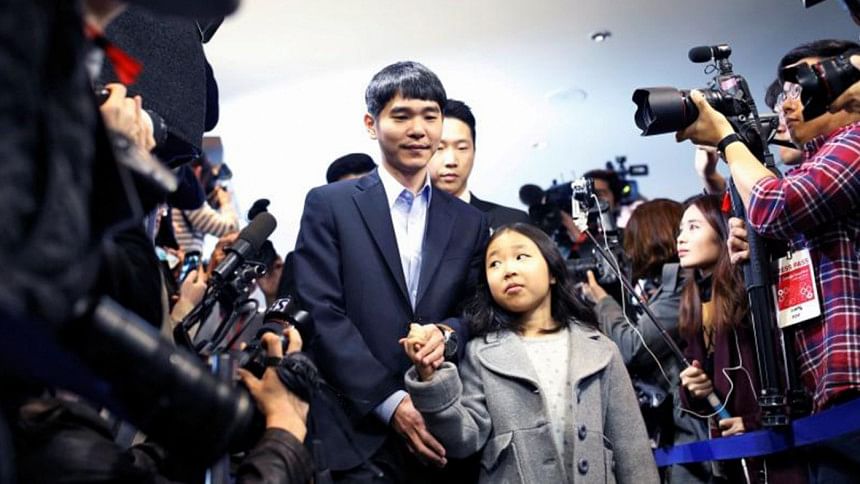Google’s AI beat Go master with 4-1 score

Google's artificial intelligence (AI) program on Tuesday beat South Korean professional Lee Sedol in the ancient board game Go, recovering from Sunday's loss to win its fourth match in a five-game series.
AlphaGo, developed by Google subsidiary DeepMind, had already clinched a series victory with its third win on Saturday, in a result that shocked the world.
The program made history last year by becoming the first machine to beat a human pro player, but 33-year-old Lee, one of the world's top players, was seen as a much more formidable opponent.
"I am disappointed that the matches are over, and also disappointed that I could not end the series on a high note," Lee told reporters, thanking fans for their support and adding that he had wholeheartedly enjoyed the games.
"I think the humans still have a good chance," he added.
Go, most popular in countries such as China, South Korea and Japan, involves two contestants moving black and white stones across a square grid, aiming to seize the most territory.
It is perfect for artificial intelligence research because there are simply too many moves for a machine to win by brute-force calculations, the route IBM's Deep Blue used to famously beat former world chess champion Garry Kasparov in 1997.
"It was just an incredible game," DeepMind founder Demis Hassabis told reporters.
Until AlphaGo's victory last year, experts had not expected an artificial intelligence program to beat a human professional for at least a decade.
The program's developers overcame the hurdles it faced with a design that enabled it to learn on its own, hoping it would be able to approximate human intuition by studying old matches and using simulated games to hone itself.
"AlphaGo's win is important, because, unlike techniques used in previous programs, it is applicable generally, and can be used for many other things," said Daniel Sleator, a computer science professor at Carnegie Mellon University.
Google executives say they aim to apply the technology underlying AlphaGo to create algorithms and programs to assist humans in fields from medical care to scientific research and robotics.
Last week, Eric Schmidt, executive chairman of Google parent Alphabet Inc, told reporters he expected the technology would eventually be deployed across all of Google's services.
"Artificial Intelligence can help find new strategies in fields such as health care or law," said Lee Sang-wan, a professor of brain and cognitive engineering at the Korea Advanced Institute of Science and Technology.
The Korea Baduk Association on Tuesday awarded AlphaGo an honorary professional 9-dan title, the highest possible rank and the same as that held by Lee, for exhibiting creative and brilliant skills and contributing to the game's progress.
Go Ratings, a website that ranks Go players worldwide, placed AlphaGo as fourth best, with Lee Sedol following, in fifth place.

 For all latest news, follow The Daily Star's Google News channel.
For all latest news, follow The Daily Star's Google News channel. 








Comments